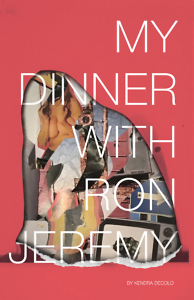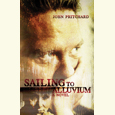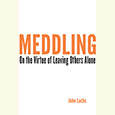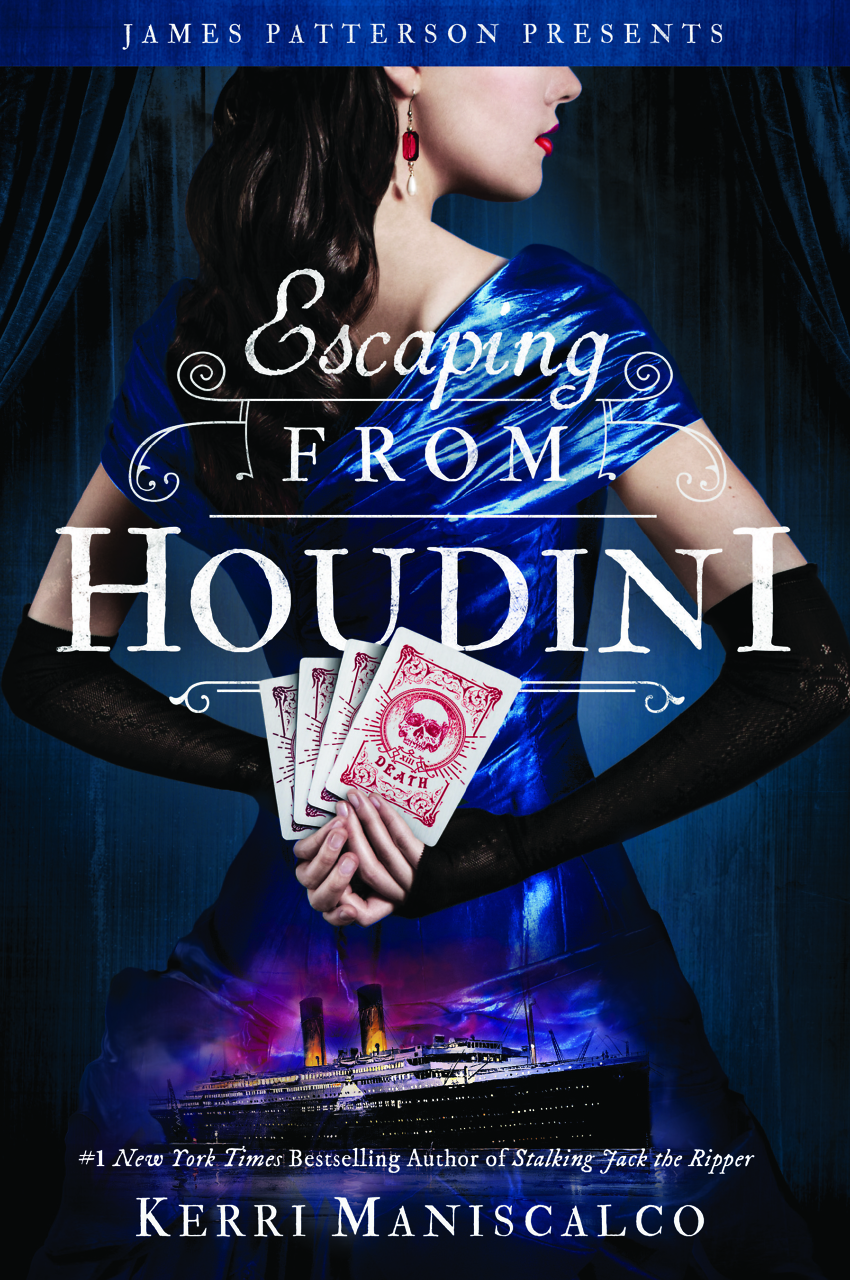Eat Drink Man Woman
Dinner with Ron Jeremy is just the first course in Kendra DeColo’s impressive new collection of poems
Nashville poet Kendra DeColo could have called her new poetry collection many things, but what she ultimately landed on is My Dinner with Ron Jeremy, a title that carries some baggage. (After looking up Jeremy’s professional bona fides, one Nashville printer refused to let My Dinner disgrace its presses, according to Chet Weise of Third Man Books.) There’s plenty here to object to, if one is so inclined, but DeColo’s brand of sex-positive feminist verse has plenty to recommend it, too. Just ask Ron Jeremy, who blurbed the book.
 Amid references to pornography and masturbation and pubic-hair trimming, in poems with titles like “Self-Portrait with the Virgin Mary and Magic Mike”—which attempts to capture the radiant truth in each—DeColo manages to coax beauty and meaning from the absurd aching morass of human existence. It’s not every writer who can emerge from these corners with anything approaching grace, much less deft, bracing poems such as these. Put another way: she has the range.
Amid references to pornography and masturbation and pubic-hair trimming, in poems with titles like “Self-Portrait with the Virgin Mary and Magic Mike”—which attempts to capture the radiant truth in each—DeColo manages to coax beauty and meaning from the absurd aching morass of human existence. It’s not every writer who can emerge from these corners with anything approaching grace, much less deft, bracing poems such as these. Put another way: she has the range.
To the chase, then. When Ron Jeremy’s name first appears in the lines of a poem, it is an invocation: “Ron Jeremy, where were you / when we needed you, patron saint / of the horny who still like to crack / a few wise ones.” It is never clear where he was, or what exactly we needed him for, but ultimately there is an alien with four breasts involved. And it is equally unclear whether this scenario is an obscure reference to Mr. Jeremy’s oeuvre—which is itself the subject of the poem/quiz “Interlude: Ron Jeremy Film or Kid’s Show We Watched in the ‘80s?”—or merely an absurd projection.
When Jeremy appears again, in the poem “Fantasy,” he’s driving a silver Audi outside a synagogue during the High Holidays. As it turns out, the titular dinner is—how to say this?—not what one might expect. And even with his name right there in the title of the book and a sketch of him gracing its innards, Jeremy—that ringleted golem of lust and commerce and sloth—hardly stands out as the most licentious figure to appear in these pages. The meal is an imagined reverie: “the two of us / at a diner eating soft-boiled / eggs, talking about the last / time we truly felt seen.”
This might smack of hipster provocation to some readers. But there is so much more to these poems, which at their best raise the specter of prurient entertainment, reckless lust, or even joyful erotic love, and succeed in extrapolating something deeper and more deeply complicated. In “They Said I’d Never Be a Dancer.” DeColo writes:
… don’t make
me lie and say I intervened
as he shoved her against the tinseled
walls of Sammy’s Roumanian
while the pitchers of chicken fat
gleamed and shivered on the table,
that I took her hand and said
“Darling, let’s hoof it,” and we danced
like lunatics until our ligaments shone.
There is a peculiar magic to this poem. “Don’t make me lie,” DeColo writes, then proceeds to tell the lie. And the lie almost—almost—erases the horror of what comes before: “watching a girl / in braces get felt up for the first time, / imagining the ride home in her father’s / minivan, murmuring into the cold / rolled-up windows when asked / about her night.” A poem can do the impossible: travel through time and make things right—or at least as right as they can be.
 Of course it’s all smoke and metaphors, but sometimes that’s the only defense we have. As in many of these poems, “They Said I’d Never Be a Dancer” radiates anxiety over lost innocence. Time and again girls are confronted by malevolent forms of men’s desire: a pharmacist coming on to a fifteen-year-old as she fills a prescription for Plan B; a high school-age waitress having a photo taken up her skirt by a man in a suit; “a man’s daughter, loved / the wrong way, touched without tenderness.” It’s not necessary to read all or any of these poems as autobiographical, but DeColo was pregnant with her first child while writing them, and the poem “There Are Things I Won’t Tell My Daughter,” which lists similarly charged encounters, will be there for her daughter to find someday.
Of course it’s all smoke and metaphors, but sometimes that’s the only defense we have. As in many of these poems, “They Said I’d Never Be a Dancer” radiates anxiety over lost innocence. Time and again girls are confronted by malevolent forms of men’s desire: a pharmacist coming on to a fifteen-year-old as she fills a prescription for Plan B; a high school-age waitress having a photo taken up her skirt by a man in a suit; “a man’s daughter, loved / the wrong way, touched without tenderness.” It’s not necessary to read all or any of these poems as autobiographical, but DeColo was pregnant with her first child while writing them, and the poem “There Are Things I Won’t Tell My Daughter,” which lists similarly charged encounters, will be there for her daughter to find someday.
That is, if we get through this presidential election cycle intact. (Donald Trump appears in a poem that also includes the phrase “escalator of my erotic dreams,” which is too much to unpack in this short space. Suffice it to say it was probably more fun to read before the GOP convention.) There is a glint of our current politics in the poem “Low-End Theory”—rest in peace, Phife Dawg—which ends this way:
it’s possible to love an idea until
you forget what love means, and doesn’t
this light show of vitriol remind me
that I, too, am dissolving back into the earth,
that we are just pre-ejaculate glittering
on god’s ornate tip that will keep spurting
long after we’re gone? Let me love
even this anchor asking, don’t all lives
matter. Let this love be enough
to keep me going, trudging through
a spectacle that shimmers like shit
flecked with gold, a rancid honey
whose sweetness obliterates as it shines.
This passage exemplifies DeColo’s lyrical modulations between high and low, eros and thanatos. And it showcases her willingness to go all the way out there with a metaphor, step in the mess and then, ultimately, find a way to make it sing. People sometimes ask how to recognize good poetry. To borrow a phrase often attributed to another human endeavor: you know it when you see it.

Steve Haruch lives in Nashville. His writing has appeared at NPR’s Code Switch, The New York Times, and the Nashville Scene, where is he is a contributing editor.


